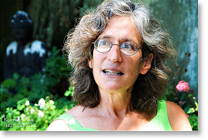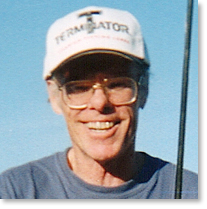|
Kaiser and SEIU Flouted NLRB Rules: An Appeal to Overturn the Kaiser Election by Steve Early, Ellen David Friedman, Paul Rockwell, Cal Winslow
That’s why a long-overdue trial is taking place in the NLRB hearing room in downtown Oakland, where the Kaiser Permanente union election (October 7, 2010), the largest private-sector election in 70 years, faces a well-documented challenge from NUHW (National Union of Healthcare Workers). In the first two weeks of the trial, Administrative Law Judge Lana Parke heard a great deal of convincing testimony about the climate of coercion and fear that pervaded the campaign. She framed the issue this way: “Kaiser, having committed unfair labor practices, SEIU having utilized the commission of these unfair labor practices at a significant point in the campaign -- would that, in fact, have a deleterious effect on the employees’ right to choose, and freely, in the election?” (If 11.4% of employees who actually cast votes had changed their vote from SEIU to NUHW, NUHW would have been victorious.) However, we wish to raise another question before the court, a question of law: How is it possible to hold a union representational election when the rules themselves, imposed by the employer, favor one union over the other? We are not attorneys involved in the case. We are pro-democracy writers and activists who believe that, from the outset, the Kaiser election was inherently flawed. Only by overturning the election can the NLRB restore due process for all workers who seek to change unions in order to control their own destiny in collective bargaining. Here, then, is our argument. The outcome of the hearing must turn, not only on matters of fact -- posters, flyers, e-mails, documents, dramatic eyewitness testimony -- but on a fundamental matter of law as well. The key question is: were the rules under which the Services and Technical (S&T) unit election was organized lawful or unlawful? Did union members cast their votes under terms set by the NLRB, or by Kaiser Permanente? Background Schmidt called attention to the status quo principle, which protects employees from employer threats and blackmail. He ordered Kaiser to pay employees raises with back pay and interest, to restore benefits, and to post public statements that such illegal actions will never happen again. So crucial is the status quo principle to the outcome of the current trial, it deserves some reflection. It was not until 1962 that employees won the right to vote in union elections free of employer interference. Justices recognized that when employers (or employer-favored unions) can threaten the livelihood of voters according to how they chose to vote, union elections degenerate into fear and coercion. Owing to a pivotal Supreme Court ruling in 1962 (NLRB v. Katz) the NLRB guarantees that all workers have a right to choose a new, or better union without risking jobs, benefits, or protections. Union representational elections are supervised and run by the NLRB under NLRB rules. Schmidt’s ruling is comprehensive and firm: "The duty to maintain the status quo imposes an obligation upon the employer not only to maintain what he has already given his employees, but also to implement benefits which have become conditions of employment by virtue of prior commitment and practice.” "Terms survive not only the expiration of a contract, but also the nullification of a contract because of a change in bargaining representatives." It is also unlawful "to tell employees otherwise." Not only acts, but verbal and written threats violate the law. As we shall see, that is exactly what Kaiser, and SEIU, did during the second Kaiser election of the summer and fall of 2010, this one involving more than 43,000 members of the S&T unit. Unlawful Actions Turned Into Official Policy In the context of Schmidt's ruling (including the many precedents to which he refers) we can now ask: To what extent, in how many ways, and with what impact, did Kaiser again flout the status quo rule after -- after -- Kaiser unlawfully withdrew raises and benefits from Southern California NUHW members? Ben Chu: Ben Chu is President of Kaiser's Southern California Region. On August 3rd, 2010, he held a conference call with Kaiser employees. He informed the participants that they could lose their PSP bonuses if SEIU lost the election. The conference was set up to inform employees about the terms in the upcoming election. In direct contradiction to NLRB rules, Chu said that, while PSP bonuses would remain secure if SEIU won, the same bonuses would be subject to discretion of the employer if NUHW was victorious. Immediately, SEIU became Kaiser’s accomplice in flouting the status quo principle. The headline on a large, colorful cardboard mailer read: "Breaking news. NUHW members face loss of PSP Bonus ... It just keeps getting worse." Not only did Kaiser impose a policy contrary to NLRB law, SEIU blitzed Kaiser's employees with the "news" that they’d lose everything if they voted for NUHW. And both Kaiser and SEIU connected these policy statements to the actions taken by the corporation in January, when NUHW Southern California members were stripped of previously contracted raises and stipends. John Nelson: In late August, 2010 John Nelson, a Kaiser spokesperson, announced that NUHW members would not be eligible to receive raises. The raises to which he referred were contracted conditions and terms of employment. Nelson also linked this Kaiser policy to Kaiser’s illegal fait accompli. Nelson’s policy statement was so widely disseminated, that the SAN FRANCISCO CHRONICLE repeated his claim (August 31) without qualification, that "NUHW members are not eligible to receive those raises." SEIU had another field day. In a cardboard poster flyer, under a headline about "facts every Kaiser employee should know before we vote," SEIU repeated the refrain that the terms and conditions of employment only apply to members of SEIU. Beth Marcus: On July 28, 2010, Beth D. Marcus, Executive Director of the SEIU-UHW and Joint Employer Education Fund, sent an official letter to the members of NUHW. It read in part: "Since you are no longer represented by SEIU-UHW ... we regret to inform you that effective January 2011, you are no longer eligible for SEIU-UHW Education fund programs." On cue, SEIU seized the opportunity to blanket Kaiser facilities and S&T employees’ home mailboxes with glossy campaign flyers publishing the Marcus letter in full. Eager to confirm the inequality of the two unions, the large headline reads: "No education fund for NUHW Members at Kaiser." Michelle Busey: The statements of Marcus, Chu, Nelson, and other top officers at Kaiser, were not private, personal, or isolated opinions, delivered from the sidelines. As the employer, with the power to hire, fire, promote and demote, Kaiser spoke with authority. When Kaiser speaks, employees listen, if not always by choice, at least as a matter of prudence. Kaiser's rules of the election were all the more authoritative because of Kaiser’s posture of neutrality. It was very clear that Kaiser announcements reflected a comprehensive statewide policy -- that takeaways would be enacted throughout the 43,000-member S&T unit as well, should NUHW also win that election. Kaiser’s sword of Damocles hung over the entire campaign.
The question does not require pure speculation. It’s sufficient to compare the S&T election, carried out in the shadow of unlawful takeaways, with the first NUHW/SEIU Kaiser election, the predecessor election of the three professional units in Southern California. Both occurred in the same year under the same employer. And the same unions were involved. Employees in both elections were under the same national and cross-regional contracts when they voted. The first election involved three bargaining units: The Health Care Professional Unit (HCP), the Psyche-Social Chapter (PSC), and the American Federation of Nurses (AFN) unit. NUHW won the election by a landslide, by margins of victory that some say were unprecedented. NUHW received 90 percent of the votes cast in the AFN unit, 84 to 85 percent of the votes in the PSC unit, and about 85 percent in the HCP unit. There were victory celebrations. Enthusiasm was high. And many volunteers expected to carry their winning message to other units in the upcoming S&T election. NUHW expected to get a huge boost from its victory in Southern California, the way a winner in the Iowa primary gets momentum in New Hampshire. As it turned out, Kaiser’s unlawful takeaways a few weeks later sapped the momentum. The victory actually became a liability. It was SEIU, the loser, that recruited and paid missionaries from Southern California to travel throughout the state, so damaging were the unlawful cuts to NUHW ability to campaign in the subsequent election. How did NUHW win the first election? What kind of strategy, what kind of message, led to victory? Because NUHW participated in the Southern California election as the legal equal of SEIU, NUHW was able -- in stark contrast to the second election -- to carry out a strong, positive campaign. True, there was mischief. It was hardly a perfect election. There were threats of takeaways, but they remained speculative. No unlawful acts gave them power. Yes, SEIU outspent NUHW ten to one, inundated worksites with paid lobbyists from out of state. But as long as NUHW confronted SEIU as a legal equal, with no desperate need to defend entitlements, NUHW had a chance to win. There was no need to explain takeaways. NUHW stayed on message, and its strategy, implemented in an atmosphere mostly free of fear, worked. NUHW activists and business reps reminded workers, who often overlook benefits they take for granted, that the gold-standard contract of 2005 provided paid health care, paid retirement, income security, input on staffing, and a partnership based on recognition of the basic rights of labor. NUHW focused on the power and vitality of membership-run unions, on local activism. It denounced the SEIU trusteeship, imposed in January 2009, when outsiders from Washington took over a once vibrant and democratic union. (The trusteeship of UHW was part of a pattern of of 80 trusteeships and forced mergers under SEIU President Andy Stern over the decade. In modern times, no union -- not even the mob-run Teamsters in the 50s -- has trusteed more locals more systematically than SEIU.) Sal Rosselli and his supporters, at great cost to themselves, stood up to the abuse of trusteeship, while many others slept. That was the position of NUHW during the first election, when NUHW was not consumed by Kaiser’s unlawful actions and policies. We do not expect the court to agree with the NUHW message, or its interpretation of its own history. But we do invite the court to recognize that NUHW had normal bragging rights in the first election, but never even got to tell its story in the second election under the impact of unlawful practices by the employer. Kaiser takeaways virtually nullified, or marginalized the affirmative messages that had led to victory in Southern California. When someone sets a fire to the back of the house, you have to drop everything to put it out. What a difference the law makes! When we contrast both elections, it is obvious to us that the two NUHW campaigns -- before takeaways and after takeaways -- were carried out under radically different circumstances with radically different results. We do not believe it is intellectually possible to explain the swing in votes and attitudes, the change of subject matter and themes, without reference to the damage caused by Kaiser’s unfair labor practices and discriminatory rules -- especially the damage to the ability of NUHW to carry its winning message into the S&T units after February 2010. Can any reasonable person believe that the outcome of the disputed Kaiser election would have been essentially the same had Kaiser and SEIU abided by the law, had the election been carried out under the same rules that prevailed in the first election, when NUHW won by a landslide? The NLRB originally set up the Kaiser S&T election as a contest between two legal equals -- NUHW and SEIU -- two unions entitled to the same terms and conditions of employment, and equal access to the voters. That NLRB election never took place. To uphold an election, whose conduct and outcome were dominated by unlawful actions of the employer, is to nullify the scope and meaning of Judge Schmidt’s ruling, and to disregard matters of law and principle to which Judge Schmidt refers. Testimony from the hearing makes it clear that Kaiser turned its unlawful acts of February 2010 into official policy for the conduct of the next, much larger, election. This crucial position, coupled with Kaiser’s total exclusion of NUHW from its facilities while giving SEIU free rein to go anywhere they chose, are in and of themselves grounds for overturning the election. If the results of this tainted election, the largest private-sector union election in 70 years, are upheld, other employers will see that they can break the law with impunity, and the future of our labor movement will be in even graver danger. |
||||||||||||||||||
| The authors: Steve Early, author of The Civil Wars In U.S. Labor (2011), worked 27 years on the staff of Communications Workers of America. Ellen David Friedman is a founder of the Vermont Workers Center. Paul Rockwell, columnist for In Motion Magazine, is co-author with Cindy Sheehan et al of Ten Excellent Reasons Not To Join The Military Cal Winslow is author of Labor's Civil War In California (2010); co-author with E.P. Thompson of Albion's Fatal Tree; and co-editor with Aaron Brenner and Robert Brenner of Rebel Rank and File: Labor Militancy and Revolt from Below during the Long 1970s (2010). Published in In Motion Magazine - April 6, 2011 |
||||||||||||||||||
Also see:
|
||||||||||||||||||
Copyright © 1995-2011 NPC Productions as a compilation. All Rights Reserved. |






